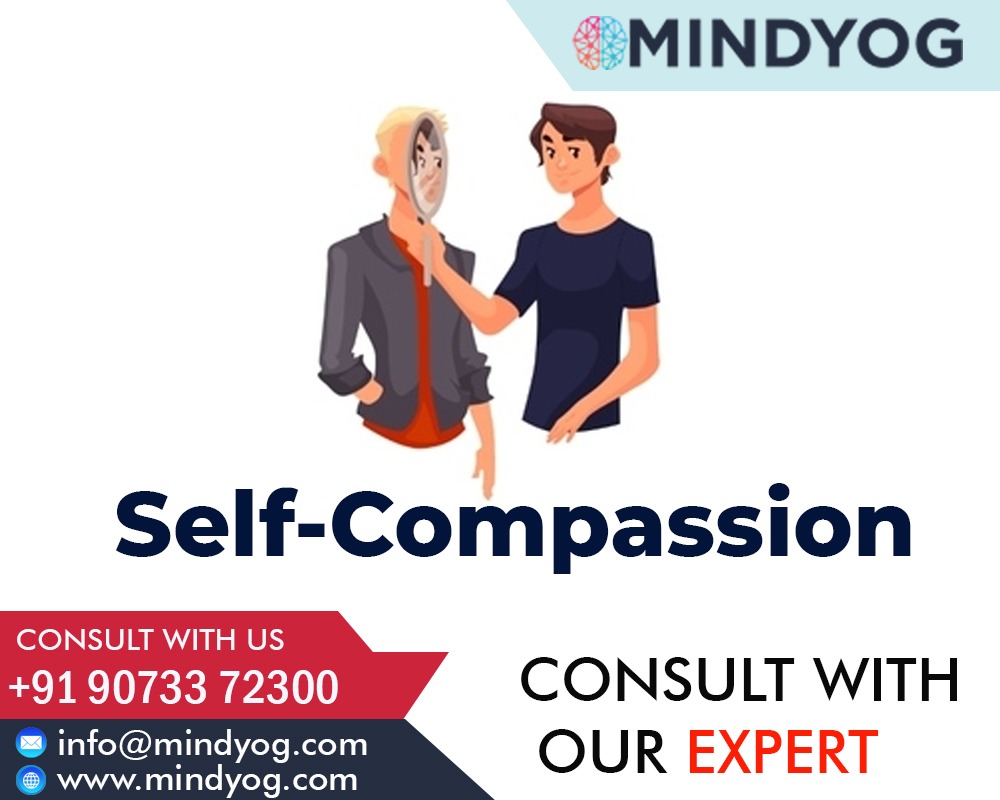2020 is a year for insight and motivation for all of us who have undergone acute trauma. Many people have asked how to practice self-compassion, which could help them to get through this difficult time. Self–compassion helps decrease many issues regarding mental health, such as anxiety or insecurity. Many help individuals cultivate compassion for them.
To some degree, everybody has been affected by the coronavirus, perhaps by fear or about the unseen threat to our loved ones, loneliness during quarantine, financial distress, or difficulties when we ourselves came in contact with the virus or need to care for sick people. We may have responded to the situation in one of two ways. Either we become defensive and blame others, or scold ourselves.
Self-compassion is a way of saying stop beating yourself every time you fail. When we feel kindness towards others, empathy, and a willingness to help reduce their pain that’s when we feel compassion for others. When we are compassionate for ourselves it is the same. Self-compassion creates a compassionate room that is free of judgment inside us and a place that sees our pain and our mistakes and softens to allow such kindness and caring experiences.
A less common term than self-esteem or self-confidence is self-compassion. Although it’s true those individuals who participate in self-compassion appear to have greater self-esteem but these two words are different. In contrast with others, self-esteem tends to include evaluating oneself in comparison with others whereas self-compassion does not require punishing yourself or others. Instead, it produces a sense of self-worth and it leads individuals to think for their own well-being and recovery after a loss.
Three attitudes are demonstrated by people with a high level of self-compassion: first, they are empathetic rather than being judgmental about their own mistakes and errors, second, they understand that failures are a shared human experience and third, when they slip or fall short they take a healthy approach to overcome from negative emotions and encourage themselves to accept the outcome but don’t allow negative emotions take over their sanity.
Kristin Neff, who pioneered in the area of self-compassion, is the first one to define the concept academically, who discussed self-compassion as having three components –
1. Self-kindness, or refraining from extreme self-criticism.
2. Recognizing one’s own humanity, or the fact that all humans are flawed and the suffering is endured by all individuals.
3. Mindfulness, or maintaining an unbiased understanding of experiences, rather than either ignoring or exaggerating their influence, including those that are painful.
If the emphasis of growth is self-compassion, rather than self-esteem, one’s sense of self-worth appears to increase and is no longer a point of the consistent appraisal. Self-compassion does not rely on either an external comparison or one’s sense of personal achievement or success rather, appreciation and acknowledgment of one’s shortcomings often lead in a way that self-esteem does not contribute to growth and personal development.
Sign a Peace Treaty with your Inner Critic
A common concern is a self-criticism and not one to be overlooked – the way we refer to ourselves plays an important role in our well being. In order to preserve a good self-image, people usually tend to conceal their flaws. People can actually improve their comprehension and clarity of their own shortcomings with self-compassion (Neff, 2003).
It would appear like this might result in a downward spiral, but it has been found self- compassion is positively associated with the enhanced mental wellbeing and greater satisfaction with life. What can you do then to make your inner critic a gentle supporter? In this field, conventional cognitive skills training has been found quite ineffective.

Fortunately, the question of harsh self-criticism can be fixed. By enhancing self-compassion and cultivating a sense of self-acceptance, this article offers you five ways to help you increase your compassion using internal and external resources:
1. Practice mindfulness
Even a quick workout can be a perfect way to nurture and embrace ourselves when we are in pain, such as meditating for a few minutes. It has been found that mindfulness has a positive effect on self-compassion, as it helps to minimize self-judgment (Kabat-Zinn, 2014). The Psychologist counseling online sessions are often based on meditation and with regular practice, you will learn to deal with your life situations in a much better way
2. Express gratitude
Feeling gratitude is very powerful (Emmons & McCullough, 2003). There is strength in appreciating what we have right now, rather than longing for what we don’t have. You can opt to write a journal of appreciation. We employ a gentle inner voice by reflecting on our blessings and turning the emphasis away from our failures and outward to the world, with all its beauty.
3. Give yourself inspiration
Think about your friend, what if he or she was facing a tough or unpleasant situation. Then, in this kind of situation when you find yourself, direct these compassionate responses towards yourself.
4. Comfort your body
Eat something nutritious. Just lie down and relax. Massage your feet and hands or your neck. Anything you can do to nurture your health will give you a dose of self-compassion.
5. Practice forgiveness
Stop punishing yourself for your mistakes. Know that when you are faced with your failures, you are not flawless, and be patient with yourself. Become conscious of times when from success or excellence you drive a sense of self-worth. Understand that to be deserving of the love you do not need to be a certain way. Search for a professional psychologist near me and he/she will also advise you the same. Thus, you would be entitled to all the above advantages by resorting to the best psychiatric counseling in Kolkata. At Mindyog, you will get the best professional assistance that will help you overcome your anxiety, mood-related issues, or other mental health concerns
Mindyog
Address: Signet Tower, 9th Floor, DN-2, DN Block, Sector V, Bidhannagar, Kolkata, West Bengal 700091
Phone: 090733 72300


